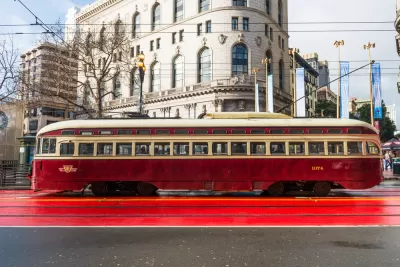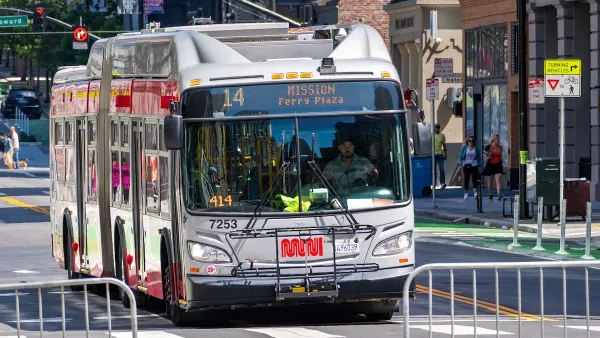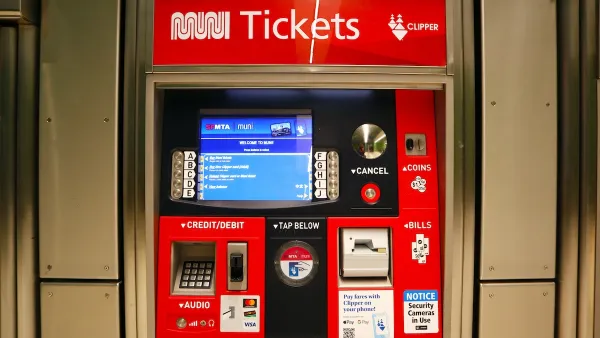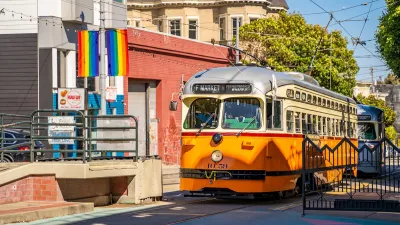The Internet of Things will continue to be a concern for cities, the ransomeware that struck the San Francisco transit system could have been much worse. A future attack will be.

Shortly after Thanksgiving, the San Francisco Municipal Transit Agency came under attack. "Someone had attacked Muni’s computer system and was demanding a ransom. Monitors in station agent booths were seen with the message, 'You Hacked. ALL data encrypted,' and the culprit allegedly demanded 100 Bitcoin (about $73,000)," Jack Stewart writes in a story for Wired.
Some riders may not even have considered that the payment machines they were using were connected to the internet, but they were. While Muni says they did not pay off the hackers, many (like this Kansas hospital) do. Like hospitals, transit systems make easy targets because, as Jack Stewart explains, "Many are aging and underfunded, with barely enough money to keep the trains running, let alone invest in IT security upgrades." This means private information about customers and employees is vulnerable.
Worse still, the problem is not just one of budgets. Connectivity is the natural consequence of a world that can do so much with internet, so more and more devices are coming online all the time and there are more and more places bad actors can take advantage of vulnerabilities. Also, digital locks, like DRM, create paths for criminals to use to break into our systems. For transit systems those devices must be accessible to the public 24 hours a day.
Stewart suggests that transit systems need to be prepared for the problem, writing, "They should create procedures for a cyber attack, then communicate, review, and update them on a regular basis." There's also work our legislators could do to make it safer to expose security risks that agencies like SFMTA and hospitals may be exposing their customers to.
FULL STORY: SF’s Transit Hack Could’ve Been Way Worse—And Cities Must Prepare

Maui's Vacation Rental Debate Turns Ugly
Verbal attacks, misinformation campaigns and fistfights plague a high-stakes debate to convert thousands of vacation rentals into long-term housing.

Planetizen Federal Action Tracker
A weekly monitor of how Trump’s orders and actions are impacting planners and planning in America.

In Urban Planning, AI Prompting Could be the New Design Thinking
Creativity has long been key to great urban design. What if we see AI as our new creative partner?

Cal Fire Chatbot Fails to Answer Basic Questions
An AI chatbot designed to provide information about wildfires can’t answer questions about evacuation orders, among other problems.

What Happens if Trump Kills Section 8?
The Trump admin aims to slash federal rental aid by nearly half and shift distribution to states. Experts warn this could spike homelessness and destabilize communities nationwide.

Sean Duffy Targets Rainbow Crosswalks in Road Safety Efforts
Despite evidence that colorful crosswalks actually improve intersection safety — and the lack of almost any crosswalks at all on the nation’s most dangerous arterial roads — U.S. Transportation Secretary Duffy is calling on states to remove them.
Urban Design for Planners 1: Software Tools
This six-course series explores essential urban design concepts using open source software and equips planners with the tools they need to participate fully in the urban design process.
Planning for Universal Design
Learn the tools for implementing Universal Design in planning regulations.
Appalachian Highlands Housing Partners
Gallatin County Department of Planning & Community Development
Heyer Gruel & Associates PA
Mpact (founded as Rail~Volution)
City of Camden Redevelopment Agency
City of Astoria
City of Portland
City of Laramie





























